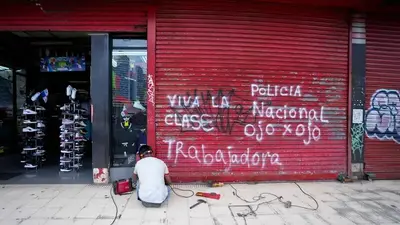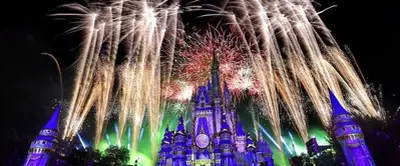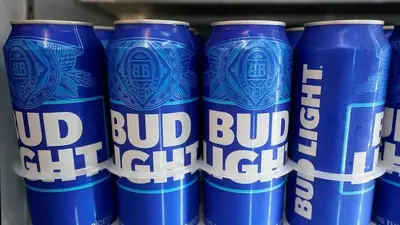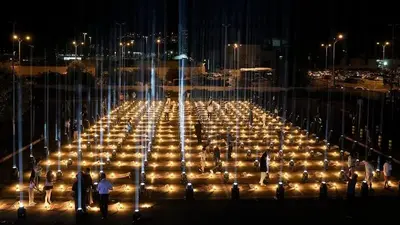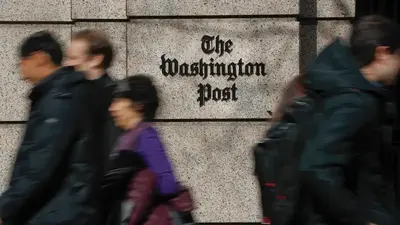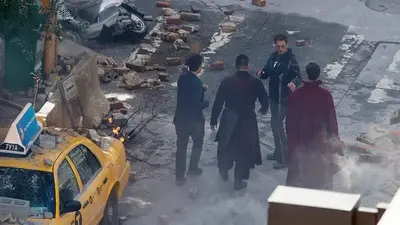Business
Hollywood's actors are joining screenwriters on strike. Here's why and what happens next
LOS ANGELES -- LOS ANGELES (AP) — Hollywood actors are joining screenwriters in the first dual strike from the two unions in more than six decades, with huge consequences for the film and television industry. Here is a look at how it has played out, why it's happening, and what could come next.
WHAT LED TO THE ACTORS STRIKE?
More than a month of talks on a new three-year contract between the Screen Actors Guild-American Federation of Television and Radio Artists and the studios, streaming services and production companies that employ them led to little progress, and the tone became openly hostile in the days before union leaders voted to begin a strike on Friday. A last minute intervention from a federal mediator didn't bridge the gap.
Union leaders say the streaming model that has taken over the industry in recent years has cheated actors of their share of income and funneled money to executives, and proposals of the Alliance of Motion Picture and Television Producers, which represents the studios, streamers and production companies in negotiations, did not even begin to meet their needs.
A 12-day extension of the contract and the talks shortly before an initial deadline in late June brought some hope a deal would be reached, but the hostility only grew. "The Nanny” star Fran Drescher, who heads the union said it made them “feel like we’d been duped, like maybe it was just to let studios promote their summer movies for another 12 days.”
Before the talks began, the 65,000 actors who cast ballots voted overwhelmingly for union leaders to send them into a strike, as the Writers Guild of America did when their deal expired more than two months ago.
WHAT DO THE ACTORS WANT?
For decades, an actor who appeared on a popular TV show like “Seinfeld” or “The Office” even once could count on getting royalty checks when the show appeared in reruns, bringing pay even at times they were unable to find work.
The streaming model has largely dried up that income, with residual payments untethered from a show or movie's popularity. Actors want a long-term share of that revenue.
The issue is one of many the actors have in common with writers. For both scribes and performers, the move to streaming and its ripple effects have also meant shorter seasons of shows with longer gaps between them, and therefore less work. They say inflation is outpacing the scheduled pay bumps in their contracts.
And both writers and actors fear the threat of unregulated use of artificial intelligence. The actors say studios want to be able to use their likenesses without having to hire them, or pay them.
Actors also say they're contending with the new and increasing burden of self-taped auditions — the cost of which used to be the responsibility of casting and productions.
The AMPTP said it presented actors a generous deal that included the biggest bump in minimum pay in 35 years and “a groundbreaking AI proposal that protects actors’ digital likenesses.” They say the union has "regrettably chosen a path that will lead to financial hardship for countless thousands of people who depend on the industry.”
WHAT WILL STRIKING MEAN FOR ACTORS?
Union rules say actors are not to do any part of their jobs, which go far beyond actually shooting films and TV shows.
They are not allowed to make personal appearances or promote their work on podcasts or at premieres. They are barred from doing any production work including auditions, readings, rehearsals, voiceovers or wardrobe fittings.
Newly minted Emmy nominees can't publicly make their case for votes, nor appear at the ceremony, which is planned for September but is likely to be seriously scaled back or delayed.
They are instead expected to spend their days on picket lines, outside the corporate headquarters and production hubs of studios.
While big names including Matt Damon, Jamie Lee Curtis and Jessica Chastain have spoken out in favor of the strike and are likely to be the face of the picketing, SAG also includes tens of thousands of actors who struggle to find work and maintain income. More serious financial hardship likely lies ahead for them.
WHAT EFFECT WILL THE COMBINED STRIKES HAVE FOR VIEWERS?
Actors joining writers on strike will force nearly every U.S.-based show or film that hasn’t already been shut down into hiatus. Forthcoming seasons of television shows are likely to be delayed indefinitely, and some movie releases will pushed back. (Don't worry, the July 21 box-office showdown between “Barbie” and “Oppenheimer” is still on.)
The writers' strike had an almost instant effect on late-night network talk shows, including NBC’s “The Tonight Show Starring Jimmy Fallon,” ABC’s “ Jimmy Kimmel Live!” and CBS’s “The Late Show With Stephen Colbert," which all went on hiatus immediately. “Saturday Night Live” axed its last three episodes of the season.
In the two months since, many scripted television series have also shut down, including Netflix's “Stranger Things,” Max's “Hacks," Showtime's “Yellow Jackets,” and Apple TV+'s “Severance.”
It may take longer to notice the actors' strike on the streaming menus on Netflix or Amazon Prime Video, though lovers of those outlets' original series will eventually have to wait longer than usual for their favorites to return.
Shoots outside the U.S., where different unions and contracts operate, can continue, as the British-based “House of the Dragon” will for HBO, though the strike is likely to have a secondary drag on those too.
And reality shows, game shows and most daytime talk shows will likely be unaffected.
HOW LONG MIGHT ALL THIS GO ON?
It's anyone's guess. After two months, there are no talks planned or imminent for the Writers Guild.
The longest previous writers' strike, in 1988, lasted five months. The most recent one, in 2007 and 2008, went on for about three months, as did the most recent actors' strike in 1980.
With both sides on strike together for the first time since 1960, and both facing so many of the same issues, they might find themselves jointly out of work for a long time.
-
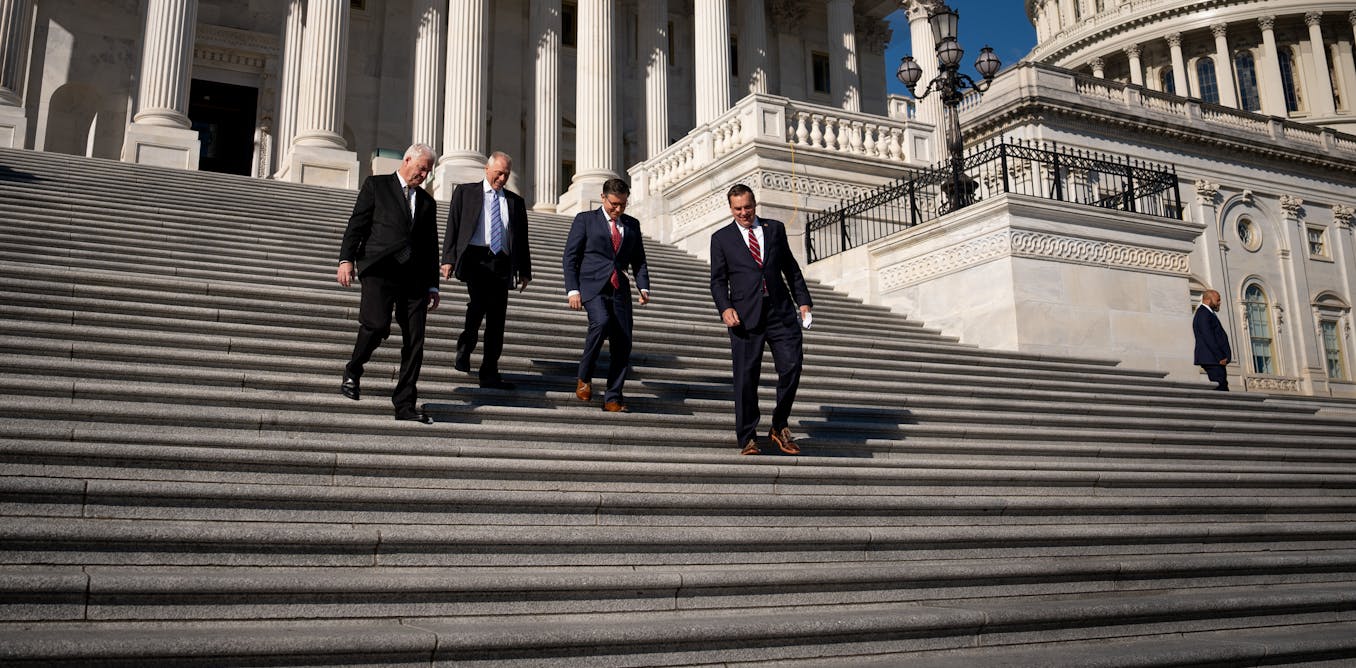
 Business2d ago
Business2d agoUS House passes measure that could punish nonprofits Treasury Department decides are ‘terrorist’
-
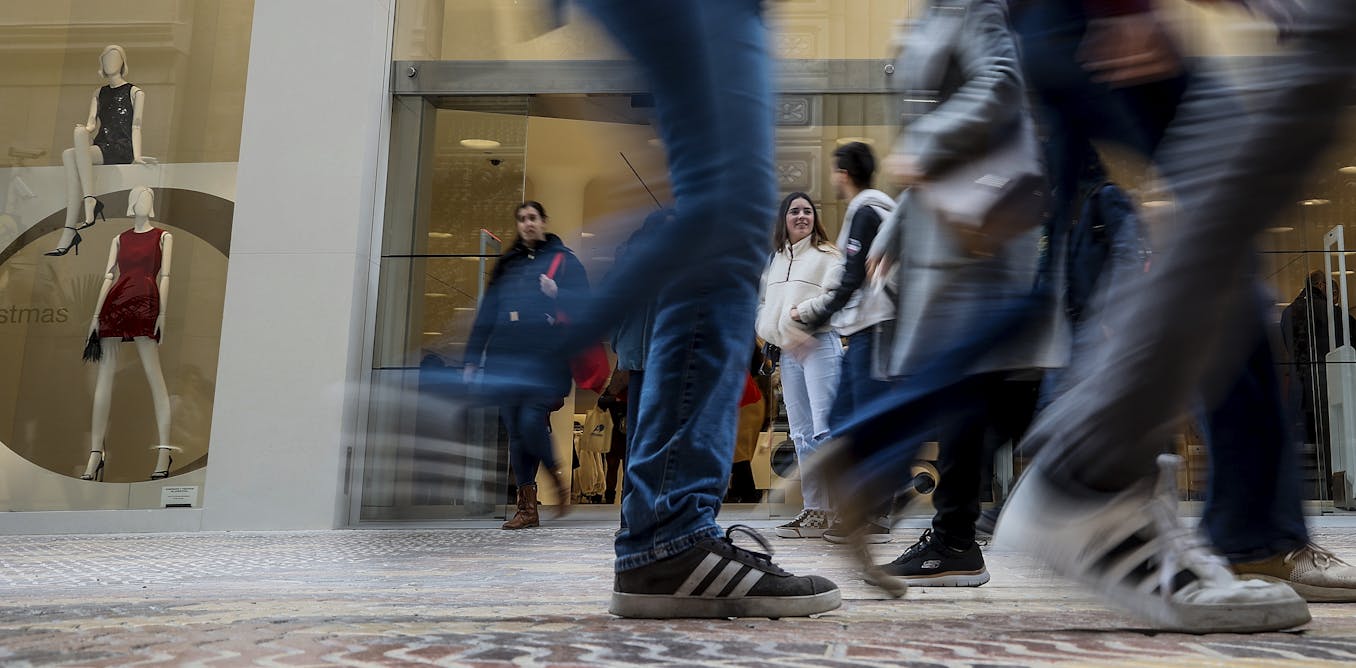
 Business2d ago
Business2d agoFast fashion may seem cheap, but it’s taking a costly toll on the planet − and on millions of young customers
-

 Business3d ago
Business3d agoNew Information: These HV Big Lots Are Now Staying Open
-

 Business3d ago
Business3d agoBrush Fire Rages On Near Butternut In Great Barrington, MA
-
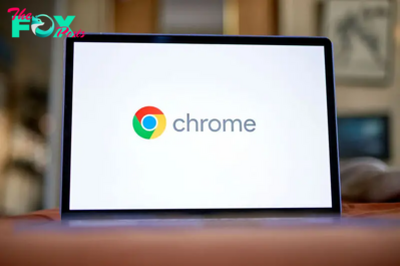
 Business3d ago
Business3d agoU.S. Antitrust Regulators Seek to Break Up Google, Force Sale of Chrome Browser
-
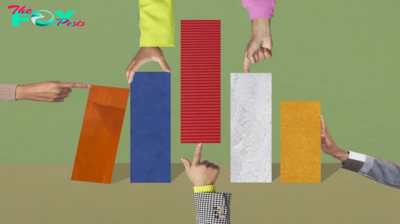
 Business3d ago
Business3d agoSuccessful White Men Alone Can’t Create America’s Economic Future
-

 Business3d ago
Business3d agoThe Rise of Silent Services
-
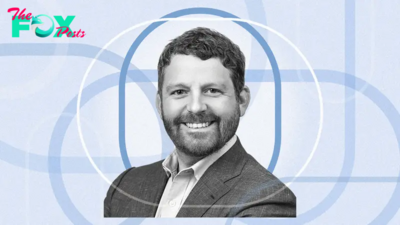
 Business4d ago
Business4d agoTim Latimer
